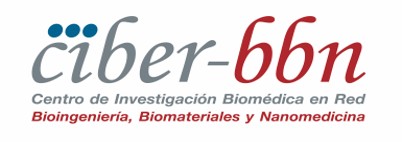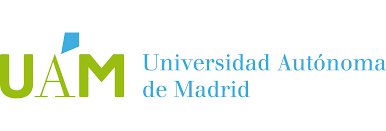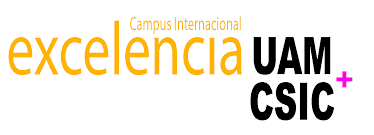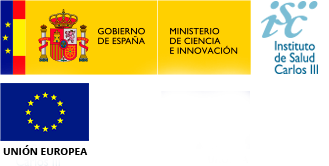About us
PANIPAC (Photoactivable nanoparticles to immunostimulate the tumor microenvironment in pancreatic cancer) sets out to tackle a pressing medical need for developing innovative therapeutic approaches that improve the outcome and survival of pancreatic cancer patients. Therapeutic strategies involving the manipulation of the immune system to defeat tumors are gaining momentum in cancer research. Single-agent checkpoint inhibitors, including agents that alter immune suppressive signals in other human cancers, have shown a limited efficacy in pancreatic cancer.
About PDAC
Pancreatic ductal adenocarcinoma (PDAC) is currently the 4th leading cause of cancer-related death world-wide. Despite the fact that significant improvements in other types of tumors have been seen in the last years due to advances in immunotherapy, life expectancy after diagnosis of PDAC continues to be the lowest. To date immunotherapy is not a realistic treatment option for PDAC due to its inherent immunosuppressive microenvironment. Turning pancreatic tumors into immunogenic tumors could open new treatment avenues making them candidates for immunotherapies.

Our Impacts
Our ambition is to provide a technological solution that allows pancreatic cancer patients benefiting from immunotherapeutics, and ultimately increasing their life expectancy after diagnosis. This project displays a high innovation potential based on our transdisciplinary patient-oriented research approach, by pulling together all the assets (samples, models, technology, and preclinical and clinical expertise) required to conduct this ambitious and unique initiative. The technological character of this project makes it highly transversal; the proposed innovative technological strategies for improving immunogenicity could have an application in many other types of tumors.
Description
PANIPAC project aims to generate an impact in the treatment of pancreatic cancer, making use of the evidences of immunological responses stimulated by Photodynamic therapy (PDT) treatment, enhanced by appropriate nanoparticles (NPs). We propose to develop nanoparticles able to penetrate and accumulate in pancreatic tumors, and efficiently deliver the associated compounds. This means to develop a tailored nanosystem for the targeted delivery of therapeutic molecules to pancreatic cancer cells, including verteporfin, an antiangiogenic drug that is under clinical evaluation for photodynamic therapy in locally advanced pancreatic cancer.
Objectives
The main objective of PANIPAC is to make an impact on the treatment of PDAC, making use of the existing evidences for the potential use of nanotechnology to manipulate and/or re-educate the immune cells of the tumor microenviroment (TME), and to locally deliver substances that can stimulate immunological responses, especially photosensitizers for controlled Photodynamic Therapy (PDT), which are also able to induce a potent local inflammatory reaction offering the possibility of boosting an immune response within a re-educated tumor microenvironment to promote the infiltration of effector T (Teff) cells.
We will meet this objective with the development of nanoparticles activated by light (NALs), composed of bioactive lipids, to induce a controlled inflammatory reaction in the TME of PDAC, and reset the immunogenicity for an improved response to immunotherapies.
- The first step is to develop NALs that can efficiently reach PDAC to deliver: 1) verteporfin for PDT, 2) the bioactive lipids, and 3) other active molecules, such as anakinra or IFNd.
- In a second phase, we will validate the potential of the developed technology to improve the immunogenicity of PDAC tumors, for the establishment of combinatory therapies with checkpoint inhibitors
Consortium
From April 2019 to March 2022, a consortium comprised of 5 partners from different countries and backgrounds will work to develop innovative nanotechnologies addressed to provide a step-change in the management of PDAC cancer treatment
Partners
|
PANIPAC is funded by the “European innovative research & technological Development projects in nanomedicine” program |
|
1. Consorcio Centro de Investigación Biomédica en Red, M.P. (CIBER) |
|
2. Universidad Autónoma de Madrid / Instituto de Investigaciones Biomédicas "Alberto Sols" CSIC-UAM. |
|
3. IRCCS Ospedale San Raffaele |
|
4. CNRS, Université Paris-Saclay |
|
5. STANIPHARM |
Nano-Oncology and Translational Therapeutics group & ONCOMET, CIBER (IDIS)
The main aim of the Nano-Oncology and Translational Therapeutics group & ONCOMET is to provide…
Joaquín Arribas’ group, CIBER (IMIM)
The group led by Dr. Arribas has generated the platform of PDTXs that has been…
Photonics Engineering Group, CIBER (University of Cantabria and IDIVAL)
The research group has five strategic R&D&i lines:
i) medical diagnostic tools based on photonic…
StaniPharm
StaniPharm is a Contract Development and Manufacturing Organization. We provide our customers with a full…
Institute Galien Paris-Saclay (IGPS) CNRS
The French National Centre for Scientific Research (CNRS) is a public organization under the responsibility…
San Raffaele Scientific Institute (SRSI)
The Tumor Immunology Unit is part of the San Raffaele Scientific Institute (SRSI), which is…
Instituto de Investigaciones Biomédicas “Alberto Sols” – CSIC-UAM
The Cancer Stem Cells and Tumor Microenvironment group at the IIBm, led by Dr. Sainz,…
Our Works
|
PANIPAC project aims to generate an impact in the treatment of pancreatic cancer, making use of the evidences of immunological responses stimulated by PDT treatment, enhanced by appropriate NPs. |
|
HOW DOES PANIPAC AFFECT YOU? |
|
To date, little advancement has been made to improve the overall survival of patients with PDAC. Understanding that the majority of PDAC patients are diagnosed at an advanced stage when metastases are present at multiple secondary organ sites, what is desperately needed are new, more aggressive, and radical therapeutic options to combat this cancer. Since traditional chemotherapeutics have failed and immunotherapy has so far not proven to be effective in PDAC, if successful, our novel proposal has the potential to make an enormous socio-economic impact on how we treat this disease. |

Send us your ideas, requests or comments and we will try to answer you as soon as possible!

















